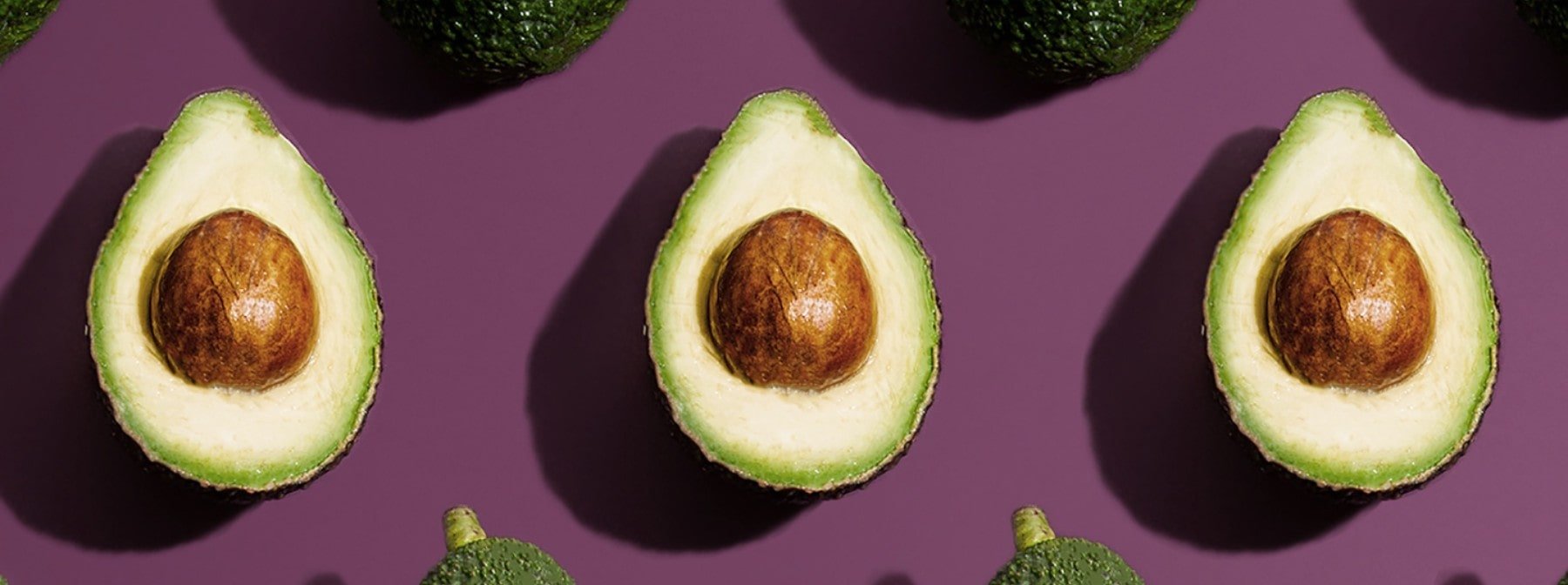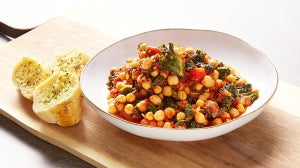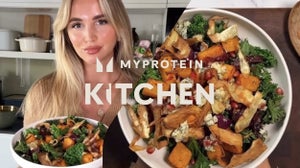
Cholesterol. Something that has been talked about endlessly in the health and fitness world, but how can we cut through the noise and get to the bottom of what cholesterol really is, and how it can impact your health?
This article will break down what exactly cholesterol is, what differentiates the “good cholesterol” from the “bad”, and which foods are linked with each.Jump to:What is Cholesterol?
Cholesterol is a soft, waxy substance that is found in all of our body’s cells. It helps support our brain and nervous system. Cholesterol is made in the liver, but we also get cholesterol from the animal-based foods we consume. When you get your blood cholesterol levels checked, the number reflects both sources of cholesterol in the body. If too much cholesterol builds up in your body, it can lead to heart disease.
Because cholesterol is made and processed by the liver, keeping our liver healthy is important too. Limiting alcohol and refined carb consumption helps keep our liver functioning at its best.
While diet impacts our cholesterol values, our genetics do too - so even someone with a very healthy diet can have problems with cholesterol, and someone who does not follow a healthy lifestyle might still have normal cholesterol.
What is LDL?
There are two primary types of cholesterol, LDL and HDL.
LDL is generally considered the unhealthy type, and is the one which we need to keep low. While LDL levels are impacted by consuming foods high in saturated fat, it’s been shown that too many sugars in the diet can also raise your LDL level.1
The other part of the ratio in cholesterol is HDL, or “good” cholesterol. HDL is the part which we need to keep high by choosing healthy fats such as, coconut oil, fish, avocado and olive oil.2 This HDL cholesterol helps absorb the fat in our blood stream and take it back to the liver.
Foods that can raise LDL:
- Butter
- Lard
- Red meat
- Baked goods/pastries
- Deep fried foods
- Processed meats
- Refined grains
- Full fat dairy products
- Sugary beverages
Foods that can raise HDL:
- Olive oil
- Coconut oil
- Salmon
- Avocado
- Nuts
- Seeds
- Whole grains
- Fruits
- Vegetables
Try our mood-boosting salmon tray bake to help raise your HDL levels...
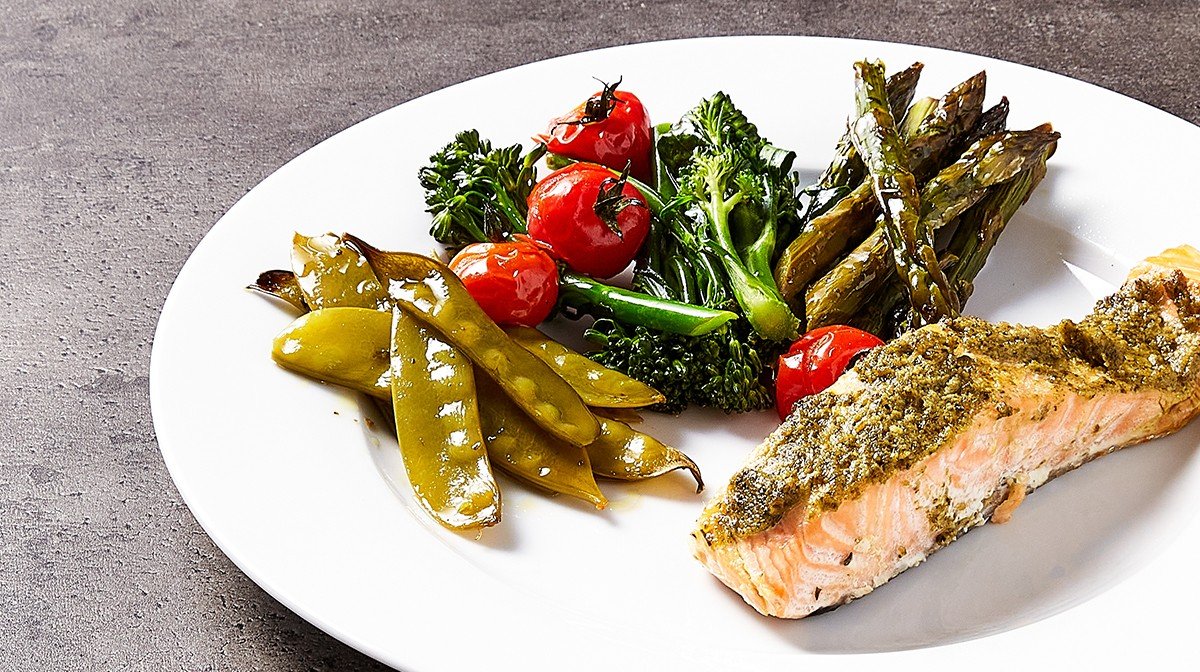
One-Tray Pesto Salmon Meal Prep | Mood-Boosting Foods
Here’s a delicious way to make sure you’re getting those mood-boosting omega-3s.
How to Lower Cholesterol
While some of our cholesterol values are inherited, our lifestyle also plays a role. Eating healthy foods, replacing saturated fats with plant-based oils, and consuming lots of fresh fruits and vegetables are some basic steps you can take.
Exercise can help to increase HDL, the good cholesterol, while smoking can lower your HDL.3,4 Eating foods that are high in fibre have also been shown to reduce LDL and total cholesterol levels.1
Take Home Message
While our cholesterol levels are partially inherited from our genes, our lifestyle and specifically our food choices can play a big role in the balance between the good and bad cholesterol levels in the body. If you are concerned about your cholesterol levels, examine your diet and optimise the foods that support heart health.READ THESE NEXT:
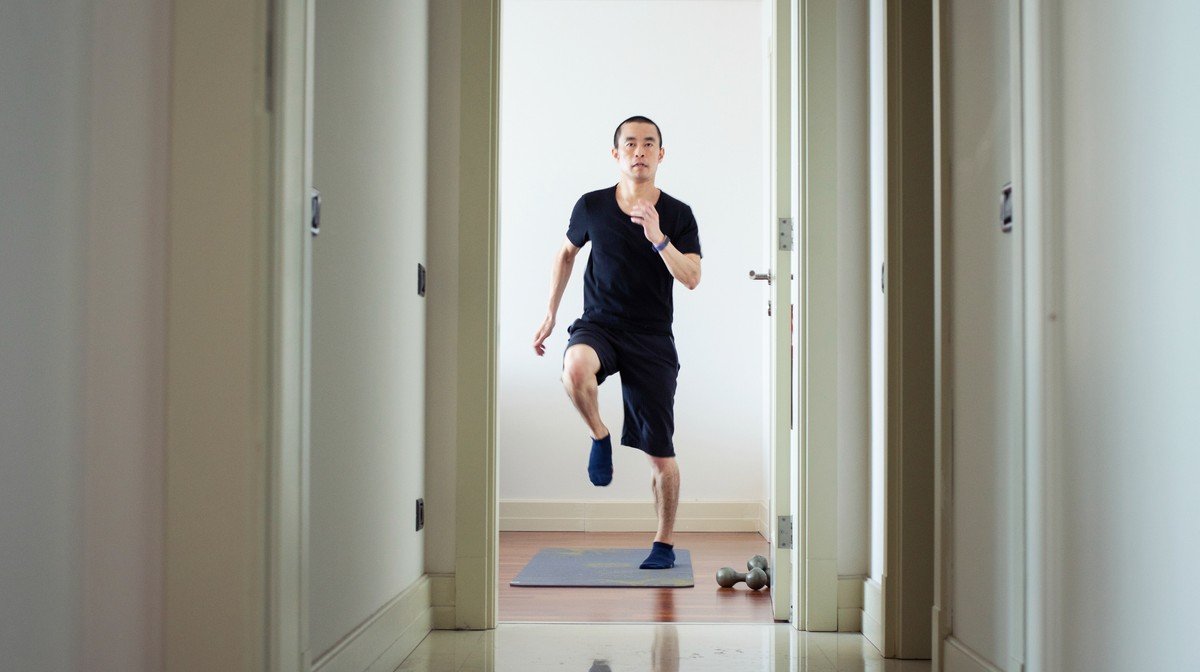
Cardio At Home | 7 Ideal Exercises For Heart Health
Cardio doesn't have to be running or cycling — try these exercises to spice it up.
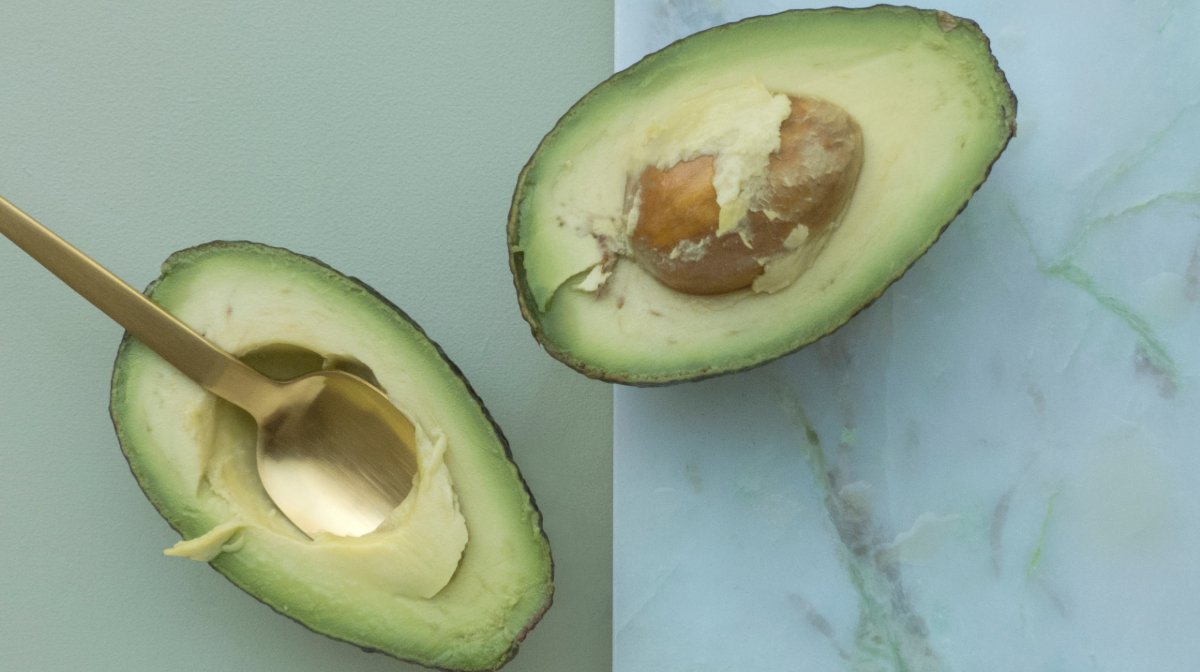
14 Healthy Fat Foods You Should Eat
Here’s what to include and what to avoid when it comes to fats.

Improve Heart Health With Hot Baths, New Research Concludes
Your usual bubble bath has more benefits that you realise...
Our articles should be used for informational and educational purposes only and are not intended to be taken as medical advice. If you're concerned, consult a health professional before taking dietary supplements or introducing any major changes to your diet.
- Kuklina, E. V., Carroll, M. D., Shaw, K. M., & Hirsch, R. (2013). Trends in high LDL cholesterol, cholesterol-lowering medication use, and dietary saturated-fat intake: United States, 1976–2010. NCHS data brief, (117), 1.
- Khaw, K. T., Sharp, S. J., Finikarides, L., Afzal, I., Lentjes, M., Luben, R., & Forouhi, N. G. (2018). Randomised trial of coconut oil, olive oil or butter on blood lipids and other cardiovascular risk factors in healthy men and women. BMJ open, 8(3), e020167.
- Varady, K. A., & Jones, P. J. (2005). Combination diet and exercise interventions for the treatment of dyslipidemia: an effective preliminary strategy to lower cholesterol levels?. The Journal of nutrition, 135(8), 1829-1835.
- Garrison, R. J., Kannel, W. B., Feinleib, M., Castelli, W. P., McNamara, P. M., & Padgett, S. J. (1978). Cigarette smoking and HDL cholesterol the Framingham offspring study. Atherosclerosis, 30(1), 17-25.

Claire is a Registered Dietitian through the Academy of Nutrition and Dietetics and a board-certified Health and Wellness Coach through the International Consortium for Health and Wellness Coaching. She has a Bachelor of Science in Biology and a Master’s degree in Clinical Dietetics and Nutrition from the University of Pittsburgh.
Talking and writing about food and fitness is at the heart of Claire’s ethos as she loves to use her experience to help others meet their health and wellness goals.
Claire is also a certified indoor cycling instructor and loves the mental and physical boost she gets from regular runs and yoga classes. When she’s not keeping fit herself, she’s cheering on her hometown’s sports teams in Pittsburgh, or cooking for her family in the kitchen.
Find out more about Claire’s experience here.
